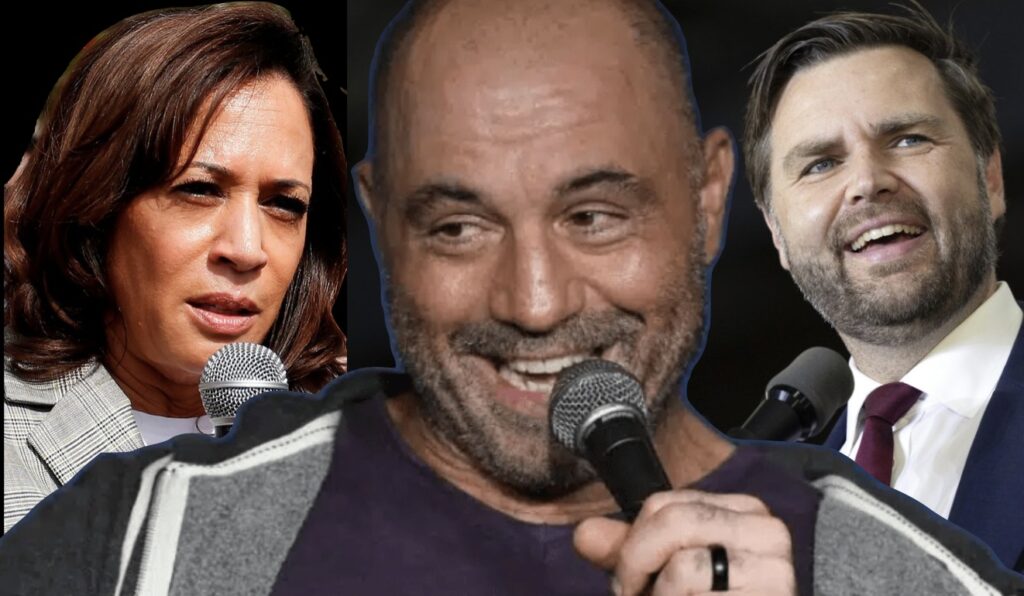On a significant day for political discourse, President Trump made an appearance on Joe Rogan’s podcast, arguably the most influential in America. The three-hour discussion, held in Houston, Texas, covered numerous contentious topics including Trump’s plans for economic recovery after what he termed disastrous years under Biden and Harris, the perceived neglect of the southern border, Middle Eastern affairs, and his views on Kamala Harris, particularly her cognitive abilities and reluctance to engage in open discussions. The episode became a sensation online, further amplified by Elon Musk, who humorously noted difficulties in accessing the podcast on YouTube, echoing ongoing debates about censorship on tech platforms.
In a contrasting scenario, Kamala Harris has declined multiple invitations from Rogan to appear on his show, despite the host’s interest in providing her a platform akin to what Trump received. Harris’s refusal to engage in an interview without a scripted format underscores her campaign’s struggle to connect authentically with a younger, male demographic that Rogan’s audience primarily represents. It’s a curious strategy, as Harris’s campaign not only declined Rogan’s invitation but also attempted to impose terms for her appearance, specifically requesting that Dean would have to come to her and limiting the conversation to just an hour. This request reflects the challenges campaign strategists face when balancing scripted narratives with the unpredictable nature of long-format discussions.
Joe Rogan responded publicly to the conditions presented by Harris’s campaign, expressing his desire for a meaningful conversation in his studio, which he believes would foster a more genuine dialogue. His insistence on an Austin venue points to his commitment to an unstructured discussion, allowing for the kind of spontaneous exchange that Rogan’s listeners expect. His interest in getting to know Harris on a personal level highlights a broader expectation from the electorate—voters increasingly demand authenticity and transparency from their candidates. In a powerful move, he shared, “I really hope we can make it happen,” showing an openness to dialogue regardless of the challenges posed by political strategy.
Since its release, the episode featuring Trump has achieved tremendous success, amassing over 38 million views within just three days of posting on YouTube. This overwhelming popularity signals not only Trump’s enduring influence but also the potential for podcasting as a significant platform in political communications. Following this trend, JD Vance, Trump’s vice-presidential nominee, announced plans to join Rogan on his podcast, setting the stage for another potentially viral political moment. Vance’s anticipated appearance indicates a strategic approach to gain favor and visibility among voters, leveraging Rogan’s platform to reach audiences that traditional media may not effectively engage.
Moreover, Musk’s engagement with Rogan’s tweets and his humorous jabs at Harris add another layer to this political landscape, demonstrating that public figures are increasingly entwined with social media dynamics as a means to bolster narratives and engage with voters. Musk’s suggestion that Harris could struggle in an unprepared environment reinforces the sentiment among some critics that her communication style relies heavily on scripted discourse, raising questions about her readiness for unscripted engagements crucial in contemporary politics.
In summary, the interactions between Trump, Rogan, and the Harris campaign illustrate the evolving nature of political engagement in America. Trump’s ability to dominate the podcast scene, combined with Rogan’s platform, challenges traditional media dynamics and suggests a shift, where candid, lengthy conversations take precedence. While Harris continues to navigate her strategy amid criticism, the decisions she makes in regard to long-form interviews could either alienate her from younger voters or present an opportunity to reshape her narrative. As this dialogue unfolds, it remains to be seen how these interactions will translate into political capital for the candidates involved, shaping the 2024 electoral landscape.

